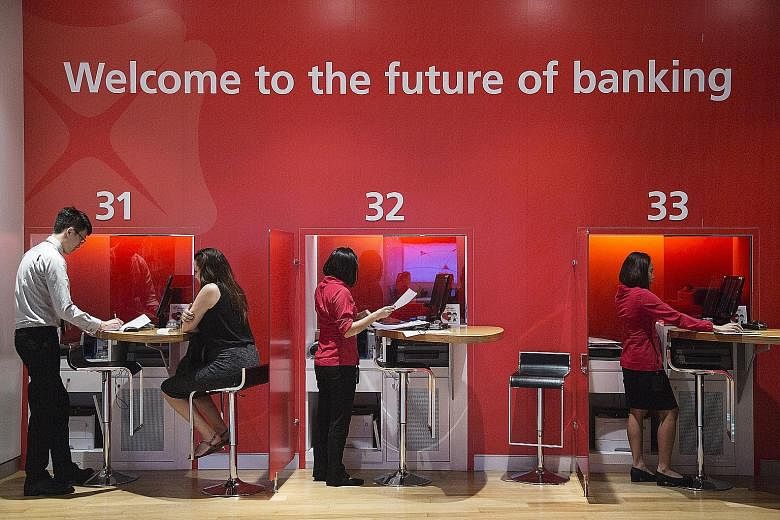If tropical Singapore had seasons, what its biggest bank just did would qualify as spring cleaning.
DBS Group Holdings is finally taking the broom to its exposure to troubled borrowers in the oil services sector with a $1.65 billion loss provision in its latest financial results.
As much as $1.3 billion of that is on the bank's Singapore portfolio, which is where it still has $1.7 billion to recover from "residual" stressed borrowers.
While DBS had cautioned previously about heightened credit costs, the amount earmarked for its Singapore portfolio is 19 times the average allowance in the previous 12 quarters.
So why is chief executive Piyush Gupta acting so conservatively all of a sudden, when global oil prices appear to be stabilising around a two-year high of US$55 a barrel?
The answer lies in accounting norms. Banks have two sets of loss buffers: general and specific.
DBS can dull the blunt edge of specific delinquencies by raiding its general provision account, and not putting the entire burden of corporate non-payments on any one quarter's profit.

That is what Mr Gupta did. By helping himself to $850 million from the $3.5 billion general provision account, he managed to cushion the decline in earnings to 23 per cent for the September period.
Without that help, the $1.65 billion allowance would have wiped out most of the quarter's $1.8 billion pre-provision profit.
Come January next year, this little manoeuvre will not be possible.
Under a new international accounting standard known as IFRS 9, any extra cushion in a general loss buffer will have to be swept into shareholders' funds as retained earnings, or converted into a regulatory reserve.
If DBS tries to make $1.6 billion in loss allowances next year, it will have to charge the entire amount against quarterly profit with no help from general provisions.
While the extra provisioning seems like the prudent thing to do, investors are not overly impressed.
The stock, which has risen 54 per cent over the past year, shed 0.8 per cent yesterday.
Disappointment over the earnings miss is understandable. With 80 per cent of shareholder value in the offshore marine sector having vanished in the past three years, it is reasonable for shareholders to ask why DBS waited this long to clean up its Singapore balance sheet.
Mr Gupta's promise that specific provisions next year will be no more than 0.27 per cent of loans - compared with 1.95 per cent in the September quarter - suggests the lender believes its bad-loan problem to be finally over. Should his kitchen sink start overflowing again for some reason, investors will be far less forgiving.
BLOOMBERG
•This column does not necessarily reflect the opinion of Bloomberg and its owners.


